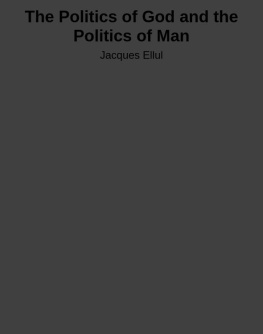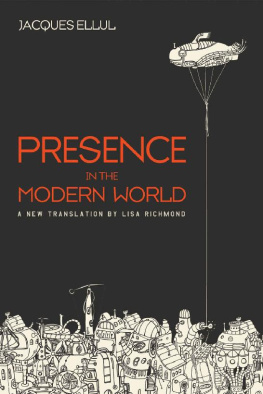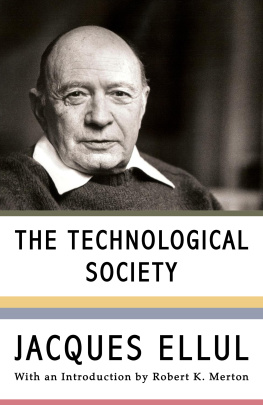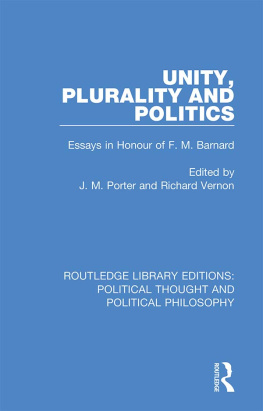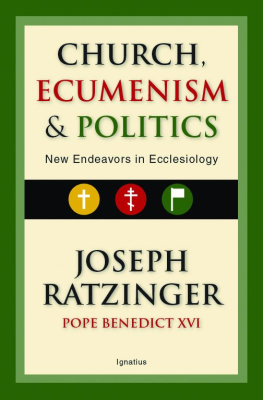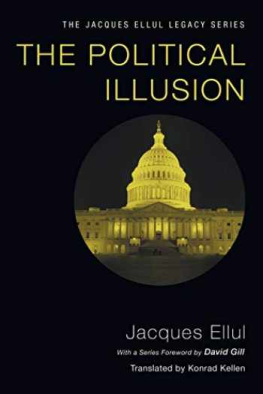The Politics of God and the Politics of Man
Jacques Ellul
Introduction
All the stories we shall read are set in the perspective of Jesus Christ. It is impossible to ignore the fact of the unity of revelation and its movement. Everything leads to Jesus Christ, just as everything comes from him. Hence Jesus Christ is not absent from the somber adventure of the Second Book of Kings. It also seems to be equally impossible to ignore at the commencement of these meditations the one in the narratives in whom we are to see a figure of Jesus Christ, namely, Elisha. It is true that some of the texts of Kings on which we shall be meditating refer to the period after Elishas death (2 Kings 16-18). Nevertheless he is still the decisive personage, and the orientation of the later stories is fixed by him.
Elijah is traditionally represented as the one who will return, and whose return will intimate the end of times. He did not die but was transported to heaven, and he will return from thence in the last days. In Malachi 3-4, God declares that it is he who will be the herald of the Lords coming. Expectation of his return was so certain that those who saw Christs passion thought he was calling on Elijah.
Elijah is the one who precedes the Lord, and Jesus confirms that he has come already when he says that John the Baptist is the returned Elijah. But "they did to him whatever they pleased... "(Matthew 17:12). If, however, Elijah precedes the Lord as John the Baptist precedes Jesus, then one must admit that Elisha is a figure, a living one should remember that in the days of Elisha Galilee belonged to the Northern Kingdom and Elisha was the prophet of this kingdom?
We shall not insist further on this feature of Elisha, but we would have the reader keep in mind constantly as he meditates on these texts that Elisha is an image of Christ; in this light order and signification are given to everything else. It is not, however, the aim of the present study to show this.
Each book of Scripture has its own particular sense, emphasis, and perspective. Each reflects one aspect of Gods total revelation. Each imparts a unique and singular truth. Yet they cannot be rigorously separated from one another. On the other hand, they are not to be confused with one another. Each has its special character. We are not just to draw out the main lines. This would be of no particular value in the Bible. Naturally everything is in everything. But it seems to me that the idea of finding everything in every text serves no useful purpose.
We believe that every book of Scripture should be taken for what it purports to be. This is the first principle of interpretation. In any biblical writing we can readily see other things than what it seems to be, but these ought to be secondary and relatively unimportant compared to what the writing itself says it is and seeks to be. For it is perhaps there that we shall find the meaning that God intends us to see in this work. Or, very explicitly, this Second Book of Kings describes for us Gods interventions in a period in the history of the kingdoms of Judah and Israel.
It seems to me, then, that this Second Book of Kings is characterized by two aspects of revelation. The first is political in the narrow sense; the problems in most of the texts are political. The problem is Israels situation as regards political power in relation to the Syrians, the Assyrians, the Edomites, and the Egyptians. It is Israels decadence as a kingdom. And we shall see directly the place, the presence, and the action of God in this area of human life.
The Second Book of Kings is probably the most political of all the books of the Bible. For its reference is to Israel genuinely constituted as a political power and playing its part in the concert of empires. Furthermore, its reference is also to an age of crisis. Above all, we see here politics in action and not just in principle. We see ethical or spiritual orientations as in Pauls Epistles.
All this is not unimportant in face of those who think the political problem should not be discussed in the church. The Bible shows us that the church is not just a spiritual matter, that politics is not just simply a human action of no concern to us. It may be that politics is the kingdom of the devil, but this certainly concerns us as Christians.
This meditation is also not unimportant in face of those who want politics to be the main action of men, and of Christians who think involvement in politics is essential and for whom everything is finally politics.
In fact these texts show the relativity of politics, which is the sphere of the greatest affirmation of mans autonomy, of his revolt, of his pretentious attempt to play the role of God. And willingly or not God steps in again. Now politics raises a special problem. In Christian circles there has often been reference to the doctrine of the state. The theology of government is well known and has been much debated. But there is a world of difference between the state and political action. To recognize the legitimacy of power and the validity of authority does not imply at all that one does the same in relation to politics; I am using the term here in the most realistic sense. It is simply to take part in a collective movement which talks of politics and which is found at the popular level. We are in the world of the political illusion which is of neither value nor interest. If it is a question of divinely ordained submission in an attitude of explicitly Christian debate and wrestling of conscience, we have here an important function in relation to the state but we are not engaged in politics. Karl Barth himself confuses the state and politics when he says that since Christians recognize in the order of the sword, of constraint, and of fear a divine dispensation, they cannot be antipolitical or apolitical.
The real problem is that of active participation in real political action, that is, the discharge of a directive function in a party or a state organism. In this alone one is engaged in politics; the rest is a matter of opinion, obedience, or debate, but it is in no sense politics. Now the problem that is posed in the Second Book of Kings is exclusively the problem of political action and not that of the state.
It is from this first perspective of politics that we shall select our texts, although we shall certainly not forget that Elishas work is a close intermingling of political action and the individual witness of love. Between his actions in relation to Moab and Naaman come the miracle of the oil and that of the raising of the small child. Between the siege of Samaria and the drama of Hazael comes the act of justice on behalf of the disinherited woman. This close intermingling of the public and the individual is the specific testimony of the prophet Elisha. Our present concern, however, is only with his political action.
Now it must also be understood that there is no question here of trying to arrive at a politics taken from Holy Scripture. One might even say that the very reverse is the case.
In these stories we shall see an intervention by God in political action as men devise and pursue it. The order is that of history and not of principles. We shall also see Gods judgment on politics. The order is that of prophecy and revelation, not of ethics and political procedures.
This introduces us to a second aspect of the Second Book of Kings, to its specific revelation. More than anything else, it seems to me, it displays concretely the play of what Karl Barth has called the free determination of man in the free decision of God. We are constantly in the presence of the relation between mans action and Gods. The trend of history in political situations brings us to one of those cruces theologiae well known in metaphysics and rationally insoluble. If God is omnipotent, he cannot allow man any freedom, and man, when he acts, can only execute mechanically what God has ordained. On the other hand, if man has freedom, if he makes his own decisions, God is simply a theoretical, abstract, or impotent God. Now in the present stories this academic problem is certainly not resolved in global or intellectual fashion. Rather, it is transported into living reality which cannot possibly be schematized. This is why it is so important to keep the stories as they are. On the one hand we must firmly refuse to make of them a contingent illustration of a doctrine of God. On the other hand we must not make of them a simple historical record, the object of external exegesis and dull science. We are in the presence of life itself at its most profound and most significant. We must not let it slip away from us. At every point we shall see the affirmation of a divine will, but it never acts directly. It transmits, expresses, and executes itself through human intermediaries. These do not have to be Israelites, believers, the righteous. God also acts through others.
Next page
